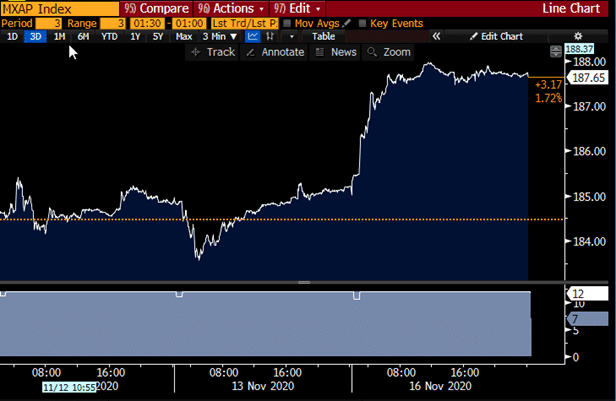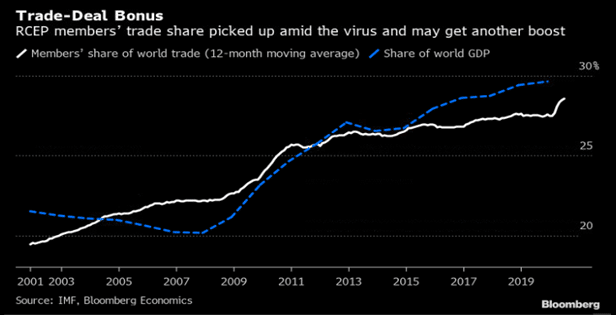- CFD trading
- CFD trading
- Markets
- Markets
- Products overview
- Forex
- Commodities
- Indices
- Shares
- Cryptocurrencies
- Treasuries
- ETFs
- Accounts
- Accounts
- Compare our accounts
- Our spreads
- Funding & withdrawals
- Open CFD account
- Try free demo
- Company, Trust or SMSF account
- Platforms
- Platforms
- Platforms overview
- MetaTrader 4
- MetaTrader 5
- cTrader
- cTrader copy trading
- Mobile trading platforms
- GO WebTrader
- Premium trading tools
- Premium trading tools
- Tools overview
- Trading central
- VPS
- Genesis
- Autochartist
- Share trading
- Share trading
- Invest in shares
- Invest in shares
- Trade ASX shares and ETFs
- Share trading platform
- Log into share trading
- Open share trading account
- Help centre
- Downloads
- Downloads
- Android app
- iOS app
- Education
- Education
- Resources
- Resources
- News & analysis
- Education hub
- Economic calendar
- Courses
- Courses
- Introduction to forex
- First steps in forex
- Next steps in forex
- Help & support
- Help & support
- About
- About
- About GO Markets
- Our awards
- Sponsorships
- Client support
- Client support
- Contact us
- FAQs
- Quick support
- Trading hours
- Fraud and scam awareness
- Legal documents
Open Account
- CFD trading
- CFD trading
- Markets
- Markets
- Products overview
- Forex
- Commodities
- Indices
- Shares
- Cryptocurrencies
- Treasuries
- ETFs
- Accounts
- Accounts
- Compare our accounts
- Our spreads
- Funding & withdrawals
- Open CFD account
- Try free demo
- Company, Trust or SMSF account
- Platforms
- Platforms
- Platforms overview
- MetaTrader 4
- MetaTrader 5
- cTrader
- cTrader copy trading
- Mobile trading platforms
- GO WebTrader
- Premium trading tools
- Premium trading tools
- Tools overview
- Trading central
- VPS
- Genesis
- Autochartist
- Share trading
- Share trading
- Invest in shares
- Invest in shares
- Trade ASX shares and ETFs
- Share trading platform
- Log into share trading
- Open share trading account
- Help centre
- Downloads
- Downloads
- Android app
- iOS app
- Education
- Education
- Resources
- Resources
- News & analysis
- Education hub
- Economic calendar
- Courses
- Courses
- Introduction to forex
- First steps in forex
- Next steps in forex
- Help & support
- Help & support
- About
- About
- About GO Markets
- Our awards
- Sponsorships
- Client support
- Home
- News & analysis
- Economic Updates
- 15 Asia-Pacific Countries Sign World’s Largest Free Trade Agreement at a Crucial Time
- Home
- News & analysis
- Economic Updates
- 15 Asia-Pacific Countries Sign World’s Largest Free Trade Agreement at a Crucial Time
 News & analysisNews & analysis
News & analysisNews & analysis15 Asia-Pacific Countries Sign World’s Largest Free Trade Agreement at a Crucial Time
17 November 2020 By GO MarketsRegional Comprehensive Economic Partnership (“RCEP”)
The RCEP agreement is a modern and comprehensive regional free trade agreement covering trade in goods, trade in services, investment, economic and technical cooperation, and new rules for electronic commerce, intellectual property, government procurement, competition, and small and medium-sized enterprises.
The RCEP negotiations have taken around eight years and could not have come at a better time. The signing of the RCEP agreement on Sunday means that 15 Asia-Pacific Countries have signed the “World Largest Free Trade Agreement” in history at a crucial time where the region needs support and to rebuild from the COVID-19 pandemic.
Members of the RCEP – ASEAN countries, China, Japna, New Zealand, Australia and the Republic of Korea make up nearly a third of the world’s population or 30% of global gross domestic product (GDP).
Asia – Pacific Markets
Asian markets rose on Monday following the signing of the largest trade deal in the region. The Asia-Pacific Index rallied to a daily high of 187.65 since the beginning of the year. The ASX closed at 6,484.3, up by 79.1 points or 1.2% on Monday after it was forced to close early following a trading system failure which halted the market.

Source: BloombergOverall, in a pandemic-induced environment, the agreement is binding those countries into a coherent trading zone which boosted RCEP members’ trade share.

China Dominance
Back in 2019, India has pulled out of the negotiations from fear that China, being one of the biggest markets in the region will exercise greater influence over the rules governing the regional trade and flood the markets with cheap Chinese goods at the detriment of Indian manufacturers. The deal signed over the weekend will leave the door open for India to join as many countries in the region considered its presence important to balance the economic weight.
Markets have still welcomed the regional trade without India as free trade in the region will boost confidence and help to counter the negative impact of COVID-19 on their economies.
Australia – China Relationship
China is Australia’s biggest trading partner mainly demand for iron ore, and coal. In the last few years, the relationship between China and Australia started deteriorating and was further exacerbated recently following Australia’s calls for an independent inquiry into the outbreak of the COVID-19 disease.
Is the Trade deal a game-changer for China-Australia? Recently, more and more Australian goods are being threatened with China’s restrictions. The key risk for the Australian markets was the elevated deterioration in their relationship. It is hard to predict whether the two countries will be able to open dialogue but at a time where the Chinese Communist Party has frozen communications with Australian ministers, there is hope and expectations that the trade deal will initiate some sort of dialogue.
Even though the trade deal is yet to be ratified, a bit shallower compared to other trade agreements and investors are still apprehensive of the commitments from China, the RCEP provides a boost in confidence at a time of global trade uncertainty.
Ready to start trading?
The information provided is of general nature only and does not take into account your personal objectives, financial situations or needs. Before acting on any information provided, you should consider whether the information is suitable for you and your personal circumstances and if necessary, seek appropriate professional advice. All opinions, conclusions, forecasts or recommendations are reasonably held at the time of compilation but are subject to change without notice. Past performance is not an indication of future performance. Go Markets Pty Ltd, ABN 85 081 864 039, AFSL 254963 is a CFD issuer, and trading carries significant risks and is not suitable for everyone. You do not own or have any interest in the rights to the underlying assets. You should consider the appropriateness by reviewing our TMD, FSG, PDS and other CFD legal documents to ensure you understand the risks before you invest in CFDs. These documents are available here.
#Economy #Economics #Finance #MarketsNext Article
Vaccine News Boosts Pharmaceuticals
2020 will go down in history as the year of the pandemic. With the ''second wave'' of COVID-19 sweeping the planet and more national lockdowns announced around the globe, there is not much to look forward to now. However, there is a glimpse of hope that we may be able to return to some normality soon. That hope? A vaccine. Pharmaceutical compan...
November 17, 2020Read More >Previous Article
NIO Making Waves
The sales of electric cars exceeded the two million mark for the first time in 2019. By far the biggest electric automaker by market cap is Elon Mu...
November 12, 2020Read More >Please share your location to continue.
Check our help guide for more info.

